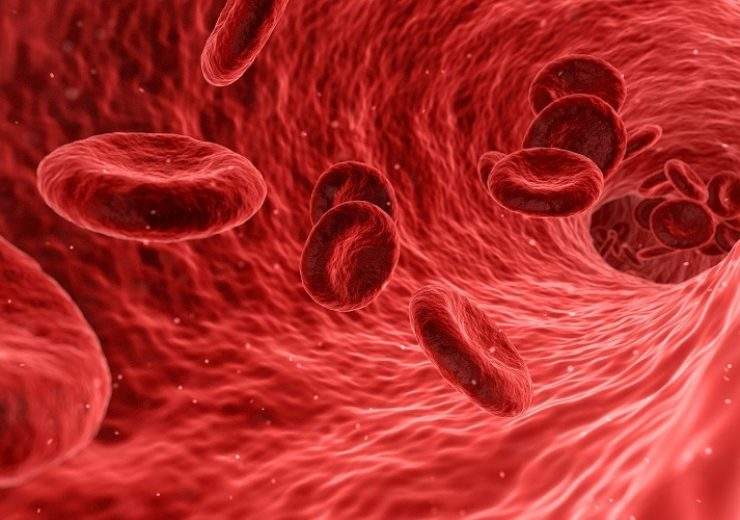Stephen Brobst, a former tech advisor to Barack Obama who is CTO at data and analytics company Teradata, is excited about the prospect of data and artificial intelligence in medicine – from improving patient compliance with prescriptions to predicting and then curing cancer

AI could one day soon cure cancer, believes one of America’s most prominent tech executives. Promoting the use of artificial intelligence in medicine, Stephen Brobst said deep learning algorithms could be used to predict genetic patterns that point to diseases – and then work out how to stop cancerous cells from growing.
In an interview with Compelo, the chief technology officer of US data and analytics company Teradata said: “At some point in the next few years, curing cancer with AI is a reality. There’s a lot of good work being done in this area.
“We’re starting to be able to identify the patterns that will create the propensity for cancer, and then we can look at the genetic editing.
“There’s a light at the end of the tunnel.”
Artificial intelligence in medicine: How deep learning algorithms can detect diseases
Mr Brobst – a former advisor of the Obama administration who was ranked in 2015 by ExecRank as the number four CTO in the US behind colleagues at Amazon, Tesla and IBM – said the very nature of healthcare could be transformed by technology in the future.
“It won’t just be about prescribing this drug for this disease,” he said. “Different components of the molecules will be different for each disease.

“What the deep learning algorithm can do is see patterns in the data and recognise with particular structures, what’s the probability you will have cancer.
“Cancer is a generic umbrella for so many things. We want to be able to predict when these versions of cancer could happen, what’s causing that propensity and can we do something about it?
“These deep learning algorithms are really good at dealing with really high-dimensional data, and genetics is the highest dimension of that.”
Data and artificial intelligence in medicine: How Kaiser Permanente uses sensors to monitor prescriptions
Kaiser Permanente, one of the biggest healthcare companies in the US, is aiming to improve patient compliance with doctors’ orders – and eradicate medicine waste – through data analytics.
Sensors are fitted inside pill boxes to provide doctors with real-time alerts about whether patients have followed instructions about prescriptions.
Teradata predicts that if the healthcare system could manage a 10% improvement in patent adherence, it cost save £30m in costs and save 12,500 lives a year.
Speaking during the Teradata Analytics Universe data conference in Las Vegas earlier this month, Mr Brobst said: “Compliance is a big issue. One of the worst things that happens is you get a prescription and take it until you feel better, and then stop taking it.
“You’re feeling better but you haven’t completely killed the virus. It then gets stronger and when you pass it on to your child, it gets stronger.
“It’s one of the big issues in healthcare, although very subtle because people don’t really understand it very well.

“So it’s in the best interests of governments to change behaviours and finding new ways to do that.”
“By using data, we can much more efficiently allocate resources to get people living longer and happier lives.”
Data and artificial intelligence in medicine: Connecting wearable technology with medical records
Reema Poddar, executive vice-president in product and technology at Teradata, believes analytics can also identify gaps in care that people need and ease pressure on doctors’ surgeries.
She said many people will not visit a doctor until it’s a last resort but wants to see wearable technology like the Apple Watch and Fitbit – which record health data including heart rate, steps and blood pressure – linked with medical records.

“Any anomaly could create a trigger and a doctor could have a treatment plan ready before you get ill,” she said.
“So you don’t even have to go to the doctors’ in the first place.”
Data and artificial intelligence in medicine: How Siemens prevents machine outages with predictive analytics
Predictive analytics can be used to identify machine failures three weeks before they happen to prevent downtime.
Siemens is one of the major backers of this technology, using this concept to transform its healthcare business.
Stefan Meiler, head of data governance and analytical services at Siemens, said: “It’s important the technology is up and running when a patient comes into a treatment room.
“We needed a solution that takes care of that in a more automated fashion.
“We have terabytes of data in 70 countries. We want to have the right answer before the question is asked by the patient.”
Ms Poddar added: “When it comes to health, time can make the difference between life and death.”


